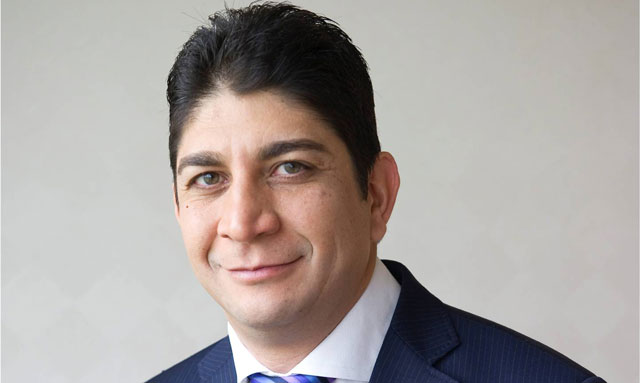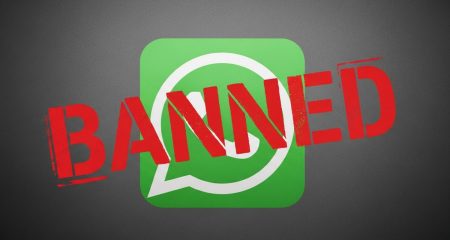
Vodacom CEO Shameel Joosub has called for a debate on how so-called “over the top” (OTT) services such as WhatsApp, Skype and Viber should be regulated in light of the risk be believes they may pose to the ability of mobile operators to continue to invest in their networks.
TechCentral editor Duncan McLeod caught up with Joosub following Tuesday’s parliamentary meeting into the possible regulation of OTT services to find out why Vodacom feels so strongly about the issue. The full transcript of their discussion follows.
Duncan McLeod: There’s been a lot of debate and controversy over the OTT discussion in recent weeks. What is it exactly that Vodacom would like to see happening regarding regulation or otherwise of OTT providers?
Shameel Joosub: The big thing for us is, if you look at what is going on in the market at the moment globally, there is a debate raging over OTTs and how you manage them — everything from net neutrality to taxation.
It’s a perceived free service, but there is advertising income which is generated. Should that be paid locally, or should that be paid in the US?
There’s also an issue around security. As you know, we have interception and monitoring [regulations]. The security agencies are approaching us to say we require a certain amount of information, which we don’t have access to.
So, there are a number of things that need to be considered. All we are saying is that in South Africa, the authorities should have the same debate.
What is an OTT? For me, it’s when you start providing what I would call operator services
It’s not that we’re trying to block [OTT services] in any way. What we are saying is one needs to apply one’s mind about what are all of the impacts of an OTT.
For us, the OTTs provide a lot of data growth, so let’s be frank about that. But they also start to play in voice, and so on. You have to be able to make sure that there is a balance in terms of investment that is required.
At the moment, there’s an ecosystem that’s … working very well. If you start to grow that exponentially, what does that mean for the level of investment? The operators need to be able to get a certain level of return to be able to invest.
So, I think it’s taking all these different topics and looking at the impacts of each, not taking what Vodacom says as the only thing, but looking at the different implications.
We were encouraged that parliament called a meeting to ask the questions. How do you achieve different things? How should you treat different types of traffic? How do you manage pornography? All those types of things.
There’s a number of things that need to be taken into account and carefully thought through. Do you license these entities or do you not license these entities? Are there certain rules they have to comply with, or is it a free for all?
McLeod: A lot of these OTT providers are simply application developers who don’t even have a presence in South Africa. Would it really be practical to try to regulate them?
Joosub: Your app developers are not necessarily OTT. What is an OTT? For me, it’s when you start providing what I would call operator services — when you start providing voice services or data services and you are playing in the space we are. If you are running an app, I don’t think that’s an OTT service. It might be an OTT service in the true sense of the word, but you don’t want to try and regulate someone who has come up with an app like Uber.
But even with apps, what is taxable? Is that clear or not? The service is generated in South Africa – is it taxable in South Africa or not?
You should have a professional review of all the different things and decide if there’s something to be done or not to be done. But we should have the debate.
McLeod: The critics would argue that this is about operators’ fear that they will become dumb pipes, that it’s the OTT providers that are threatening to turn the operators into low-margin utilities. The operators are seeing their traditional voice and SMS revenues being eaten away by these OTT providers. What would you say to people who put that criticism forward?
Joosub: The markets will evolve. Networks won’t become dumb pipes. There is a billing relationship that exists with the customer. Yes, it is true that you will have situations where more and more voice is carried over data networks, but that per se is not the issue, because what will happen is the data needs to appropriately priced so you get the returns so you can continue to invest.
Instead of the networks going off and doing there own thing, wouldn’t it be more sensible to have a discussion and agree on a way forward?
Remember, for OTTs to exist there has to be an underlying data network. Data is investment hungry. That ecosystem has to continue to invest. If the telco dwindles down to a de facto utility provider with very low margins … you can only invest what you made. Telcos pay tax. They invest. If those equations start to change, how does that affect us. That doesn’t mean we have to block OTTs. But we need to understand how the ecosystem works.
McLeod: Would Vodacom consider charging different prices for different types of data traffic — say, a different rate for voice over IP?
Joosub: We have not done that. That brings a different debate. We don’t want to do things that start to affect our customers. We should sit down and have a debate about it — how do you manage this whole situation, how do you continue to ensure you have the investment? If data is growing to the extent it is, how do we ensure the networks can continue to cope with the level of data, which means that we need spectrum.
At the same time, to invest, we have to put more fibre down, to invest in 4G and in future 5G. It’s important to find the right modus operandi for everything to work in harmony. The OTTs have a big role to play in the growth of data, but how do we manage that? Those are the questions we need to be able to answer.
McLeod: Shouldn’t the network operators be developing OTT services of their own to take on the likes of WhatsApp and Skype? In other words, cannibalise your own products, rather than have third-party OTT providers do it?
Joosub: Look, I think you have to have services available. The telco services will evolve. We have products. But at the same time, you should empower the OTTs to allow them to grow.
But you need to consider the unintended consequences. You need to accept you have a new level of player that’s come into the market. You have networks, you have MVNOs (mobile virtual network operators) and you have OTTs. You should look at OTT networks that are taking on the same role of an MVNO. This is different to mobile app developers.
Should you allow networks to charge differently or not? Instead of the networks going off and doing there own thing, wouldn’t it be more sensible to have a discussion and agree on a way forward?
McLeod: We have the white paper policy on ICT coming up in a few months, in which government now says it will deal with the OTT issue. In the ideal world, from Vodacom’s perspective, what would you like that white paper to say about the regulation of OTT services?
Joosub: I don’t think we want to presume what it might say. We want to make sure the different issues are taken into account. If you are going to have a new form of operator, should they be licensed? Should they have obligations?
We’d like to see the massive data growth that is happening … how do we cope with it. That’s through investment into networks and into fibre.
Secondly, how do we get the important investment we need to sustain this? How do we look at the market structure, whether it’s MVNOs or OTTs.
We are not saying we don’t want competition. They might be a new form of competition, which is okay, but let’s understand what it is and how it’s going to evolve in years to come. Let’s take from the learnings of other countries. There’s a leadership role for South Africa to play in Africa.




